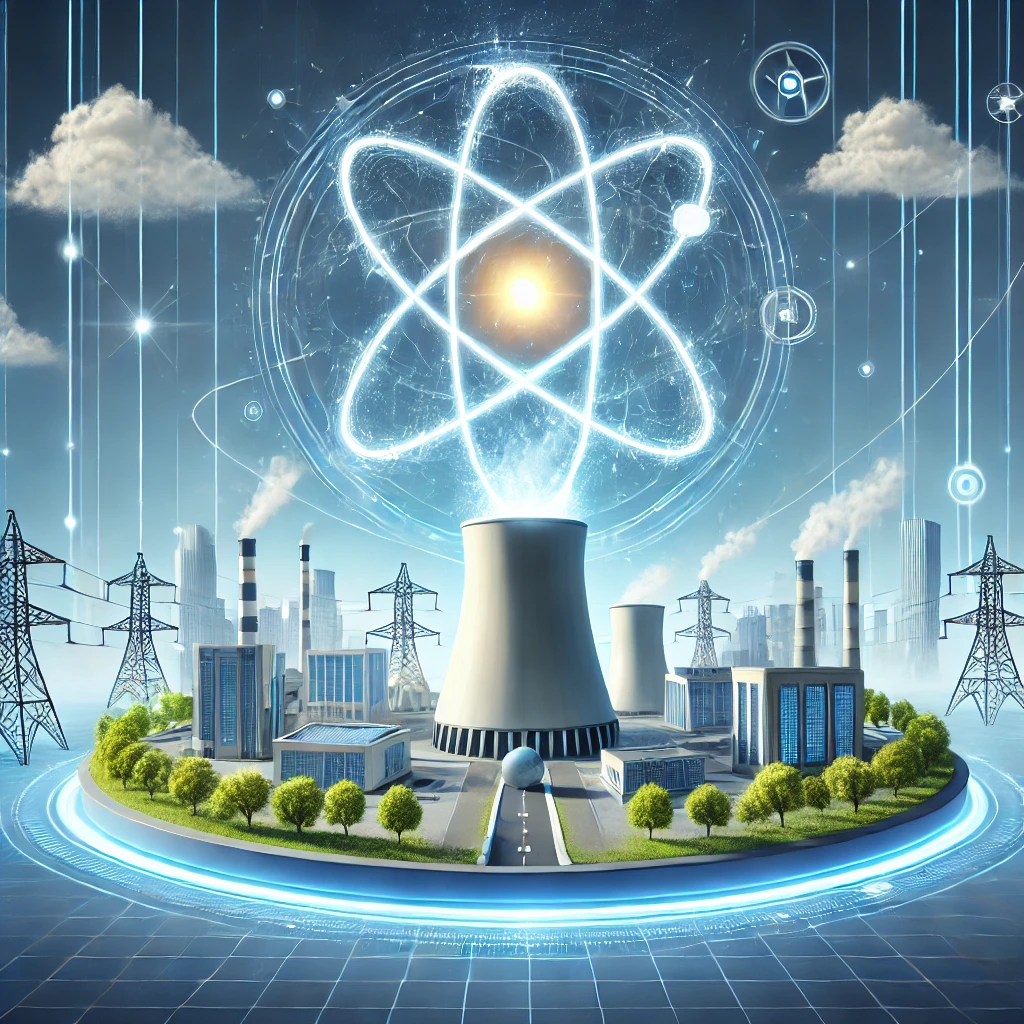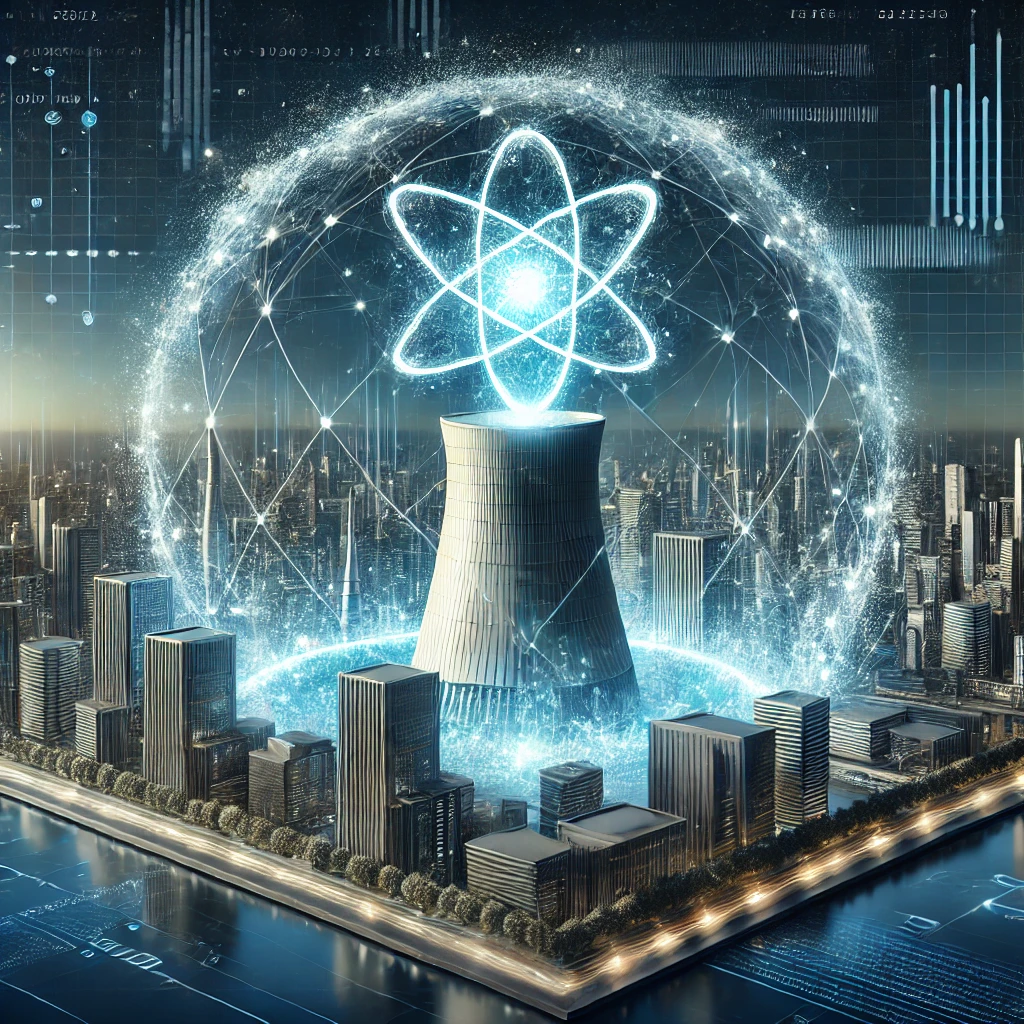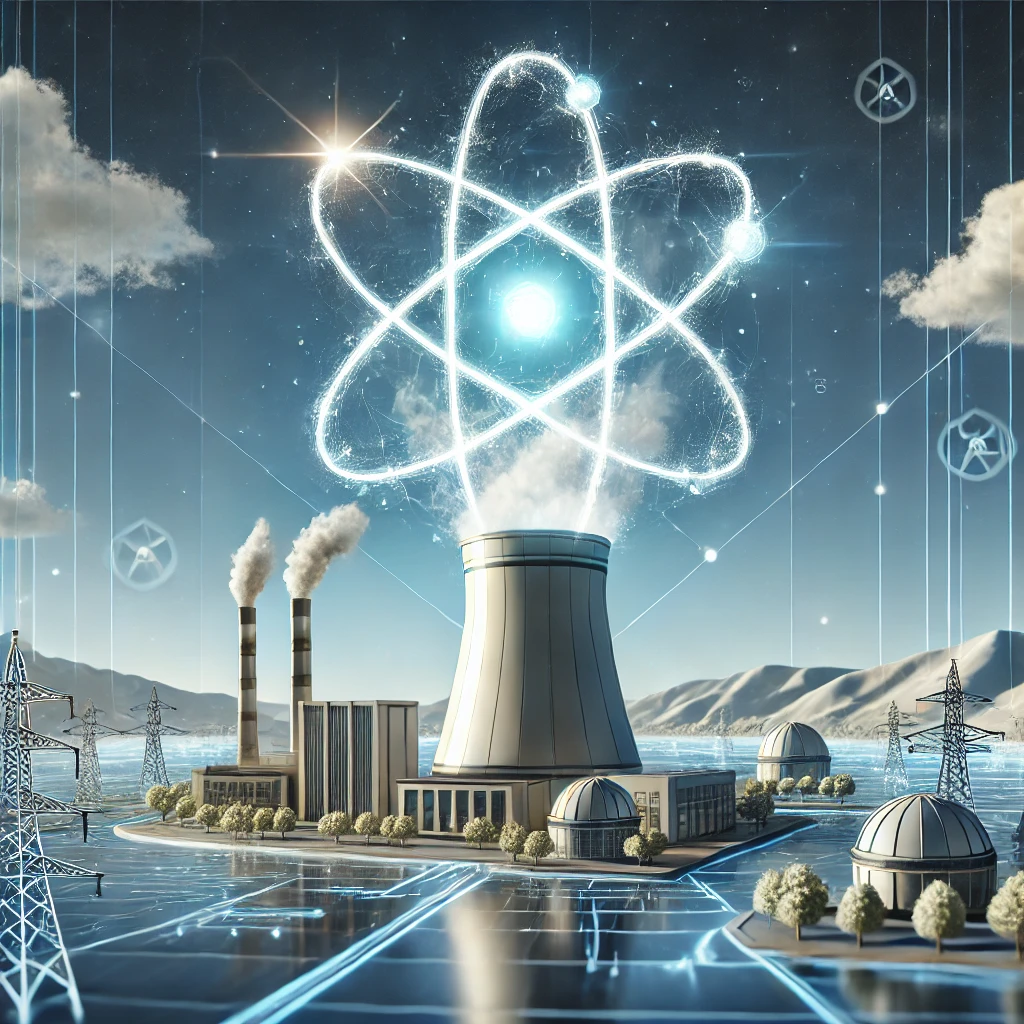Nuclear Energy

Introduction
Nuclear energy is one of the most powerful and efficient energy sources in the world. It is generated through nuclear reactions and is primarily used to produce electricity. Many countries rely on nuclear energy to meet their growing power demands
Types of Nuclear Reactions
There are two main types of nuclear reactions: fission and fusion. Both processes release massive amounts of energy, but they work in different ways.
Nuclear Fission
Nuclear fission is the process of splitting a heavy atom, such as uranium or plutonium, into smaller atoms. This reaction releases a tremendous amount of energy in the form of heat, which is used to produce electricity in nuclear power plants.
Nuclear Fusion
Fusion is the process that powers the sun and stars. It occurs when two light atomic nuclei, usually hydrogen, combine to form a heavier nucleus, releasing energy. Scientists are still researching ways to harness fusion energy for practical use on Earth.
Electricity Production
Most of the world’s nuclear power plants use fission to generate electricity. The heat produced from fission is used to convert water into steam, which spins turbines to produce electricity. Nuclear power plants operate efficiently and provide a steady supply of energy.
Environmental Benefits

One of the biggest advantages of nuclear energy is that it produces very little carbon dioxide compared to fossil fuels. This helps reduce air pollution and combat climate change. Unlike coal or oil, nuclear energy does not release harmful greenhouse gases into the atmosphere.
Reliability and Efficiency
Nuclear power plants can generate electricity 24/7 without interruption. Unlike solar and wind energy, which depend on weather conditions, nuclear energy provides a constant and stable power supply. This makes it a reliable source for large-scale energy production.
Nuclear Accidents
Despite its benefits, nuclear energy comes with risks. The most famous nuclear disasters include the Chernobyl (1986) and Fukushima (2011) accidents. These incidents released harmful radiation into the environment, causing long-term health and ecological damage.
Radioactive Waste
Nuclear power plants produce radioactive waste, which remains hazardous for thousands of years. Proper disposal and management of this waste is a major challenge. Scientists are working on safer storage methods, such as deep underground disposal.
Global Use of Nuclear Energy
Many countries, including the United States, France, China, and Russia, rely heavily on nuclear energy. France, for example, generates over 70% of its electricity from nuclear power. Other nations are investing in nuclear energy to reduce dependence on fossil fuels.
Opposition to Nuclear Energy
Some people oppose nuclear energy due to its risks. They argue that accidents, radiation exposure, and nuclear waste pose serious dangers. Many environmentalists prefer renewable sources such as solar and wind energy as safer alternatives.
Advancements in Nuclear Technology
New technologies are making nuclear energy safer and more efficient. Advanced reactors, such as small modular reactors (SMRs), are being developed to reduce risks and improve performance. These reactors produce less waste and have enhanced safety features.
The Future of Nuclear Fusion
Scientists believe that nuclear fusion could be the ultimate energy source. Unlike fission, fusion produces minimal waste and does not pose the same risks of radiation leaks. Major projects like the International Thermonuclear Experimental Reactor (ITER) are working to make fusion a reality.
Cost of Nuclear Energy
Building nuclear power plants requires a large initial investment. However, once operational, these plants provide cost-effective energy for decades. Advances in technology could reduce construction costs and make nuclear energy more affordable.
Nuclear Energy and Climate Change
As the world looks for solutions to combat climate change, nuclear energy is seen as a potential answer. Since it does not produce carbon emissions like coal and gas, expanding nuclear power could help countries meet their climate goals.
Challenges in Expanding Nuclear Energy
While nuclear power has many advantages, there are challenges to its expansion. Public fear, high costs, and waste disposal issues make it difficult for some countries to adopt nuclear energy. Governments must address these concerns to gain public support.
Conclusion
Nuclear energy is a powerful and efficient source of electricity. While it has risks, advancements in technology can make it safer and more sustainable. With proper management and innovation, nuclear energy could play a crucial role in meeting the world’s energy needs in the future.

Here are two futuristic illustrations of atomic energy, highlighting clean nuclear power, sustainability, and innovation. Let me know if you need any modifications or additional designs! 🚀